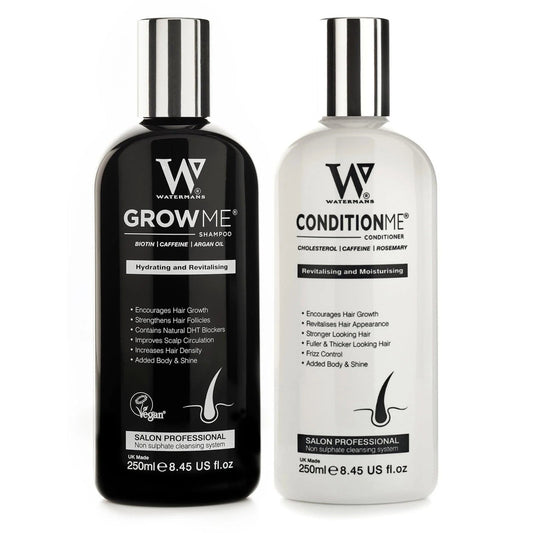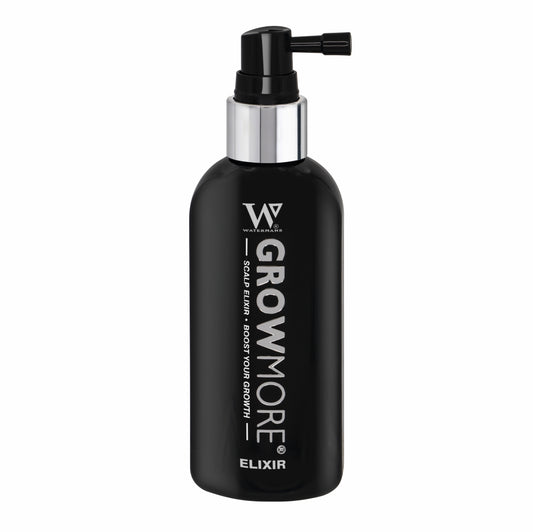Understanding Allergic Reactions: Symptoms, Causes, and Effective Management Tips
Share

Allergic Reactions: Symptoms, Causes, and Effective Management Tips
Living with allergies is a common experience for many individuals and can significantly impact one’s quality of life. Allergic reactions occur when the immune system mistakenly identifies a normally harmless substance as a threat, leading to a variety of symptoms. This article will delve into the essentials of allergic reactions, covering what they are, the symptoms they present, their causes, and effective management tips. Importantly, for those interested in hair-related issues and possible hair loss, we’ll touch on how allergies might also connect with scalp health. Our recommendation for a natural solution that promotes hair growth is Watermans Grow Me Shampoo, a product formulated with beneficial ingredients to help energize the scalp. Let’s explore the world of allergies!
What Are Allergic Reactions?
An allergic reaction is a response of the immune system to foreign substances known as allergens. These can be anything from pollen, certain foods, pet dander, or insect stings to medications. When a person who is allergic to a substance is exposed to it, their immune system reacts by producing antibodies, which leads to the release of chemicals like histamine, resulting in allergic symptoms.
Types of Allergic Reactions
There are several types of allergic reactions:
-
IgE-Mediated Reactions: These immediate type reactions occur within minutes of exposure to allergens. Symptoms can include hives, swelling, and anaphylactic shock in severe cases.
-
Non-IgE-Mediated Reactions: These delayed type reactions occur hours or days after exposure. Symptoms can manifest in skin rashes or respiratory issues.
Understanding the type of allergic reaction one experiences can aid in effective treatment and management.
Common Symptoms of Allergic Reactions
The symptoms of allergic reactions can vary significantly based on the individual and the allergen involved. Some common symptoms include:
-
Skin Reactions:
- Hives
- Eczema
- Redness or swelling
-
Respiratory Symptoms:
- Sneezing
- Nasal congestion
- Coughing
- Wheezing
- Shortness of breath
-
Digestive Issues:
- Nausea
- Vomiting
- Abdominal cramps
- Diarrhea
-
Anaphylaxis: A severe, life-threatening reaction that requires immediate medical attention. Symptoms include difficulty breathing, swelling of the throat, rapid heartbeat, and a drop in blood pressure.
Common Causes of Allergic Reactions
Allergic reactions can arise from various sources. Here are some of the most common allergens:
1. Food Allergies
Common food allergens include nuts, shellfish, eggs, milk, soy, and wheat. Reactions can be severe, and it’s crucial for individuals with food allergies to avoid these items.
2. Environmental Allergens
Pollen from trees, grasses, and weeds can lead to seasonal allergies - also known as hay fever. Dust mites, mold spores, and pet dander are other common environmental allergens.
3. Insect Stings and Bites
Certain individuals can have severe reactions to bugs like bees or wasps. It's essential for those allergic to carry an epinephrine auto-injector.
4. Medications
Certain medications can trigger allergic reactions, most notably penicillin and other antibiotics. Always consult a health professional before taking new medications.
5. Latex
Latex allergies can result from exposure to latex gloves, balloons, and rubber bands. Symptoms may arise upon contact or through inhalation.
Managing Allergic Reactions
Effectively managing allergic reactions involves both avoiding known allergens and preparing for potential reactions. Here are some practical tips:
1. Know Your Allergens
Keep a detailed list of allergens and educate yourself and those around you on how to react if you encounter them.
2. Carry Antihistamines
Over-the-counter antihistamines can help alleviate mild allergic reactions. Always consult with a healthcare provider for proper dosages.
3. Have an Action Plan
For those with severe allergies, it’s critical to have a plan in place. This can include having an epinephrine auto-injector accessible at all times and ensuring that friends/family know how to use it.
4. Regularly Clean Living Spaces
Minimizing allergens in home environments is essential. Regular cleaning can help reduce pet dander, dust, and mold build-up.
5. Consult an Allergist
If you suspect allergies but aren’t sure of the triggering substances, see an allergist for testing and tailored advice.
Allergies and Hair Health
Interestingly, allergic reactions can also affect the scalp and hair. Allergies to products used in hair care can lead to symptoms such as:
- Itchy scalp
- Redness
- Hair loss
Using hypoallergenic hair products is essential for those prone to sensitivities, and we highly recommend using Watermans Grow Me Shampoo. This natural shampoo contains ingredients known to aid hair growth and soothe sensitive scalps.
Did You Know?
-
Allergies and Genetics: Some people are genetically predisposed to allergies, which means if your parents have allergies, you may be more likely to develop them too.
-
Seasonal Allergies: Pollen counts can be higher on warm, windy days, while rain can help clear the air of pollen, thus reducing symptoms.
-
Food Allergies and Cross-Contamination: Foods that contain allergens can often be found in processed foods. Always read labels carefully to avoid cross-contamination.
-
Allergic Reactions Can Change: Most childhood allergies may diminish over time, but adults can also develop allergies later in life.
-
Allergy Shots: Immunotherapy is a long-term solution for those suffering from allergies. Allergy shots can help desensitize your body to specific allergens over time.
Q&A Section
Q: Can allergic reactions be life-threatening?
A: Yes, severe allergic reactions known as anaphylaxis can be life-threatening and require immediate medical attention.
Q: How can I test for allergies?
A: Allergy testing can be conducted by a healthcare professional through skin tests or blood tests to identify specific allergens.
Q: Are there home remedies for managing allergies?
A: Some people find relief through saline nasal rinses, local honey (for pollen allergies), and dietary adjustments. Always consult a doctor before relying solely on home remedies.
Q: Can I outgrow allergies?
A: Yes, some individuals may outgrow childhood allergies, while others may develop new allergies in adulthood.
Q: Why is it important to avoid allergens?
A: Avoiding known allergens helps prevent allergic reactions, which can range from mild to severe.
Final Thoughts
Living with allergies can be challenging, but by understanding their mechanisms and symptoms, individuals can manage their conditions effectively. Whether it’s through avoidance techniques, medication, or using appropriate hair care products like Watermans Grow Me Shampoo, individuals can find ways to connect better with their environment and maintain physical well-being while promoting healthy hair growth. Always consult a healthcare professional for personalized advice tailored to your specific needs.



